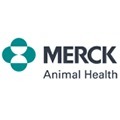 Merck Animal Health is pleased to introduce PORCILIS™ ILEITIS, the first injectable vaccine that offers a 20-week duration of immunity (DOI) for control of ileitis caused by Lawsonia intracellularis. Ileitis can significantly impact the health and performance of finishing pigs; curbing average daily gain by 38 percent and feed efficiency by 27 percent.1
Merck Animal Health is pleased to introduce PORCILIS™ ILEITIS, the first injectable vaccine that offers a 20-week duration of immunity (DOI) for control of ileitis caused by Lawsonia intracellularis. Ileitis can significantly impact the health and performance of finishing pigs; curbing average daily gain by 38 percent and feed efficiency by 27 percent.1
Given as a single, intramuscular vaccination to pigs as young as 3 weeks of age, PORCILIS ILEITIS provides substantially longer protection – 13 additional weeks – compared to the water-administered vaccine on the market. It helps pigs maintain optimal health and efficient production performance until market. PORCILIS ILEITIS controls the disease, reduces colonization of L. intracellularis and reduces duration and concentration of fecal shedding. Results of a challenge study show that PORCILIS ILEITIS also was able to induce L. intracellularis antibody titers and control both gross and microscopic lesions.2

“Ileitis has been a long-standing and costly health challenge for the swine industry,” says Kelly Greiner, D.V.M., technical services manager, Merck Animal Health. “Because of the subclinical nature of this disease, subtle performance changes across a herd can go unnoticed, causing considerable economic losses. PORCILIS ILEITIS is a valuable tool to help producers better manage the disease – protecting the health of the herd and the operation’s bottom line.”
Merck Animal Health’s proprietary MICROSOL DILUVAC FORTE® adjuvant system, designed specifically for pigs, plays a key role in the vaccine’s efficacy. The adjuvant, also used in CIRCUMVENT® G2, has an impressive track record of creating longer and stronger immunity, which means when there’s an actual real-world exposure, a pig’s immune system will respond rapidly.
- Paradis M.A., McKay R.I., Wilson J.B., Vessie G.H., Winkelman N.L. and Gebhart C.J. Subclinical ileitis produced by sequential dilutions of Lawsonia intracellularis in a mucosal homogenate challenge model. Proceedings of the 36th Annual Meeting of the American Association of Swine Veterinarians. 2005.
- Data on file.
September 16, 2015 - Merck Animal Health

